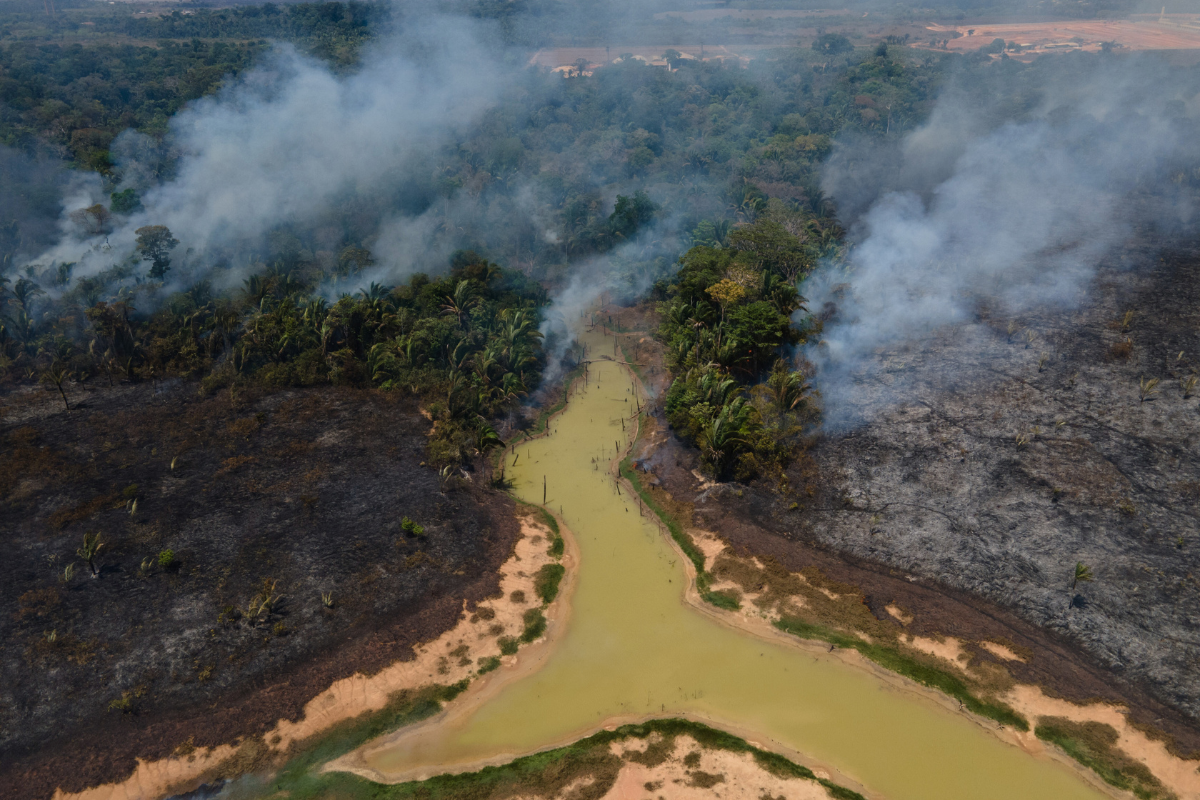Every day, evapotranspiration from Amazonian trees transfers 20 billion tons of water into the atmosphere. The flow is greater than that of the Amazon River, the most voluminous in the world, to the ocean.
This enormous amount of humidity forms the so-called “flying rivers,” which flow throughout Latin America and are a key factor controlling rainfall and the climate in the region (and all over the world, to some extent).
Thanks to geography, the Amazon produces almost half of its own rainfall. But these water cycles are in jeopardy as the Amazon, or at least major portions of it, risks becoming a savanna-like biome.
For decades the Amazon has suffered from deforestation, fires, and the expansion of cattle pastures to the detriment of forest area, threatening the very processes that make it a rainforest. Combined with climate change, this may lead to a tipping point after which large areas of the Amazon basin will no longer have the ability to recover from disturbances.
In the four years of Jair Bolsonaro’s government, 7,300 square kilometers of the Xingu Basin were deforested — an area larger than São Paulo, the largest city in Latin America. Per NGO Imazon, which monitors forest destruction with troves of satellite data, Brazil posted new records for rainforest destruction rates in each of the past five years.
Experts still disagree on how close the Amazon is to that tipping point. But a March 2022 study by a team of researchers led by Chris Boulton at the University of Exeter claims that more than 75 percent of the Amazon forest has lost resilience since the early 2000s, meaning it can’t recover as quickly after drought or fire.
Researchers have for years warned about...


 Search
Search






































